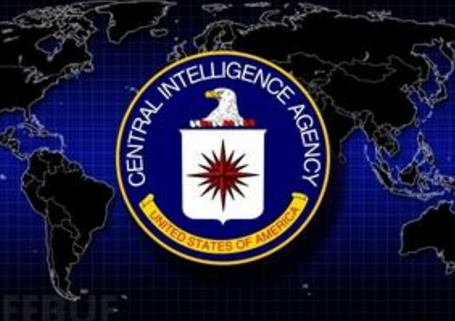JUDY WOODRUFF: As we just discussed, WikiLeaks today did publish thousands of pages of what it says are files about the CIA and its hacking activities.
Jeffrey Brown has our further look.
JEFFREY BROWN: The material comes from the CIA's Center for Cyber Intelligence. It includes a range of documents from 2013 to 2016 which describe cyber-tools for hacking cell phones, computers, television, and even vehicles.
The documents also contain computer code. One program, dubbed Weeping Angel, entails infecting Samsung smart TVs, turning them into bugging devices. Another program is aimed at hacking Apple and Android cell phones, undercutting encryption on services like WhatsApp, Signal, and Telegram.
WikiLeaks also says these documents show that when the CIA discovered flaws in computer code written by Apple, Google or Samsung, it failed to notify those companies about the vulnerabilities to allow fixes to be made.
Mark Mazzetti of The New York Times has been covering this, and joins us now.
Mark, welcome to you.
So, the CIA hasn't said much so far. What do we know about the authenticity of the documents and where they came from?
MARK MAZZETTI, The New York Times: Well, we're still trying to confirm the authenticity.
We have several people we have spoken to today who say they believe they're authentic. We have heard nothing thus far from the government indicating that they are not. Some people we have spoken to have said that some of the code names that were cited in the documents are, indeed, legitimate.
So it does appear at the moment — and I should say at the moment — that they are legitimate.
JEFFREY BROWN: Well, when you look at the totality, Mark, of all of these cyber-tools that being described, help us understand, what are they aimed at? What is this program about?
MARK MAZZETTI: Well, they're a series of — and we're talking about thousands of documents that are laying out some of the tools the CIA allegedly has to carry out hacking of any number of different devices, as you said, cars, against foreign adversaries or people overseas.
I should stress that there is — unlike the Snowden disclosures, there were not specific mentions of where these have been used. But they're more sort of like the toolkit the CIA has. And it's pretty expansive, if the documents are to be believed.
And in terms of where they came from, you asked. I mean, that's another thing we're still trying to figure out. WikiLeaks said today that they had a source come to them who was concerned about the use of these tools. We don't know anything about the source. And there's a lot of questions still at the moment.

JEFFREY BROWN: WikiLeaks said that it had redacted some names and some information in its release. But how potentially damaging is this to the CIA?
MARK MAZZETTI: Well, again, if they're confirmed to be true, any revelations about actual capabilities that the CIA or any other intelligence agency has would limit the ability of the agency to continue to do those activities.
You saw that to a degree with Snowden and others. And so that is where the concern is, that you will have a lot of — these tools may not be used because they're now revealed. But, again, we have to — we still have to report out exactly, you know, what has been used and, to a large extent, how much of this is actual truth.
JEFFREY BROWN: Yes, and I realize so much of that is going on.
I mentioned one particular program, which is the Weeping Angel, using Samsung smart televisions as covert listening devices. But that's one concrete example that's come out today.
MARK MAZZETTI: Yes.
And the — in a nutshell, the idea was that the Samsung smart TVs have a feature that allowed access to the Internet, and by having this — you're basically turning this smart feature on. The CIA is turning it into a microphone and allowing eavesdropping in a home.
And another thing you cited was questions about the ability of the agency's hackers to sort of sort of bypass traditional encryption and very popular encryption software like Signal or WhatsApp.
The idea is not that the programs themselves are hacked or compromised. It's that, if you're in the phone, if the CIA were to be in the phone, they would be able to get the data before it was then encrypted by these applications.
JEFFREY BROWN: And just, Mark, in 10 seconds, in a word here, so much of the attention has been on the NSA programs in the past. Is it a surprise to learn that the CIA may have its own program?
MARK MAZZETTI: Well, it's pretty well known that the CIA has been building up this capability and are determined to because they see computer hacking and computer cyber-warfare as the future.
So, they are very much in that game.
JEFFREY BROWN: All right, Mark Mazzetti of The New York Times, thank you very much.
MARK MAZZETTI: Thank you.













